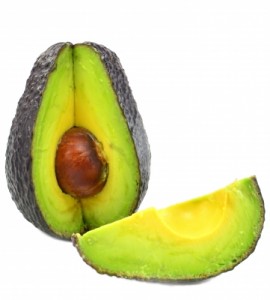Most people know that the best vegan protein sources consist of a variety of legumes, grains, nuts, and vegetables. To get the most nutrition out of a plant-based diet, then it’s important to mix it up a bit, choose from a variety of low-fat, high-protein, and high-fiber foods that provide vitamins, minerals, and essential fatty acids. Ounce for ounce, these non-animal foods provide the best vegan protein sources.
Protein is essential for many important bodily reactions, including building and repairing muscle tissue, fighting illness, and growing strong, healthy bones and nails.
Contrary to popular belief, you don’t have to eat meat to get your fill of protein. Protein is everywhere- it’s in vegetables, fruits, grains, nuts, seeds, beans, and of course, meat, milk, and fish.
Vegan Vitamin B12
One nutrient you can’t get from a strictly vegan diet, however, is vitamin B12 (cobalamin). For that reason, many vegans are susceptible for severe vitamin B12 deficiency, which can manifest itself slowly over several years. In order to prevent symptoms linked with vitamin B12 deficiency (fatigue, memory loss, muscle pain, and numbness), it’s essential to supplement with large doses of vitamin B12 on a regular basis.
Here are the 5 best vegan sources of protein:
#1- Quinoa
Eaten as a grain, quinoa is really a “pseudo-grain” that is more alike in composition to a seed. Unlike most vegan protein sources, quinoa is a complete protein that delivers all the amino acids you need in one meal. Use quinoa in your favorite tabouli recipe or in place of white rice or couscous. Alternatively, serve porridge of sweetened quinoa as a naturally gluten-free breakfast cereal, for 10 grams of complete vegan protein per cup.
#2- Avocadoes
Technically a fruit, avocado is usually eaten as a vegetable. One avocado provides 10 grams of vegan protein, in addition to healthy fiber and healthy fatty acids. Other vegetables that provide adequate amounts of protein are broccoli, sweet potatoes, and spinach.
#3- Soybeans
TVP (texturized vegetable protein), tempeh, and tofu are all excellent vegan protein sources that derive from the soybean. One cup of soybeans or tofu provides 22-28 grams of protein, while one cup of tempeh (fermented soybeans mixed with grains) delivers a whopping 30 grams of vegan protein.
6 Must-Eat Foods for Die-Hard Vegans
#4- Sesame seeds
One ounce of sesame seeds provides 6 ½ grams of vegan protein, while 3 tablespoon of tahini (ground sesame butter) contains 8 grams of protein. Sesame seeds are also powerhouses of essential vitamins and minerals, including calcium, iron, magnesium, and thiamin (vitamin B1).
#5- Pistachios
Nuts may be fattening, but most contain healthy oils and provide protein, to boot. One ounce of shelled pistachios provides 5.8 grams of protein. Other healthy nuts are almonds (2 grams of protein per tablespoon), cashews (4.4 grams of protein per ounce), and walnuts, at 5 grams of protein in ¼ cup.
Please tell us…
Do you have any questions or suggestions? Please leave your comments below.
Share with your friends!
If you found this article helpful, then please share with your friends, family, and coworkers by email, Facebook, or Google+.
Like this? Read more:
On Becoming Vegan: Avoiding Vitamin B12 Deficiency and Others
Benefits and Sources of Vitamin B12, and How to Avoid Deficiency
Sources:
Highest Sources of Vegan Protein
Top seven vegan sources of protein
Images courtesy of FreeDigitalPhotos.net


